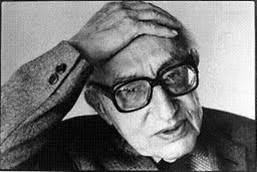Our next post in ‘The Voices of the People’ symposium (full programme here) is by the many-headed monster’s very own Laura Sangha, Lecturer in British History 1500-1700 at the University of Exeter. Laura shows that whilst the voices of ordinary people were not thought to be as trustworthy as those of gentlefolk in the early modern period, they still played an important and often overlooked part in intellectual debates surrounding ‘science’, as the experiences of humble individuals were sought out and valued by intellectuals as evidence against which to test emerging theories.
Laura Sangha
The idea at the heart of this post is voices of the people in unexpected places. Whilst there are more traditional topics (such as poverty, crime or work) that provide opportunities for exploring and uncovering ordinary voices, I want to focus on an area that is traditionally thought of as the exclusive preserve of the elite. That is, the realm of ‘science’, or, if you are an early modernist: the areas of natural and mechanical philosophy. When we think of this domain, we envisage the gentleman practitioner, the well-educated, well-resourced intellectual elite, usually engaged in a conversation with someone from a similar background to himself. Yet I want to suggest that even here, in an area that initially appears to be completely cut off from the people, their non-elite contributions were sought out and valued, and the voices of the people resonate.

Ralph Thoresby, 1658-1725
I will be supporting this suggestion with reference to my current research into the life of Ralph Thoresby.[1] For those of you who are not familiar with the man, a brief introduction. Thoresby lived from 1658-1725, he was from a middling, trade background, but he was also an antiquarian, a member of the Royal Society, and the owner and curator of a museum in his home town of Leeds. His archive is very extensive and includes the diary that he wrote for the entirety of his adult life, as well as a large set of correspondence with friends, family, and the great and the good in ecclesiastical and intellectual circles. Thoresby was therefore a respected provincial practitioner, inspired by the Royal Society to the study of antiquities, natural curiosities and strange weather – the stuff of early modern science.
There is a plausible case for saying that Thoresby himself was one of the people – though he was relatively well off, he did not attend either of the universities and was a long way from the intellectual heart of the country in the south east of England. But in this post my focus will be on the way that Thoresby’s scientific activities bought him directly into contact with (even more) ordinary people’s experiences and voices. Continue reading →
 This is not the place for proper review of the book as there are already plenty of those available, including a substantial analysis by my co-blogger Mark. However, I would like to look slightly more closely at one particular aspect of the book which speaks directly to an issue that we have struggled with repeatedly on this blog: how do we divide up early modern society?
This is not the place for proper review of the book as there are already plenty of those available, including a substantial analysis by my co-blogger Mark. However, I would like to look slightly more closely at one particular aspect of the book which speaks directly to an issue that we have struggled with repeatedly on this blog: how do we divide up early modern society?







